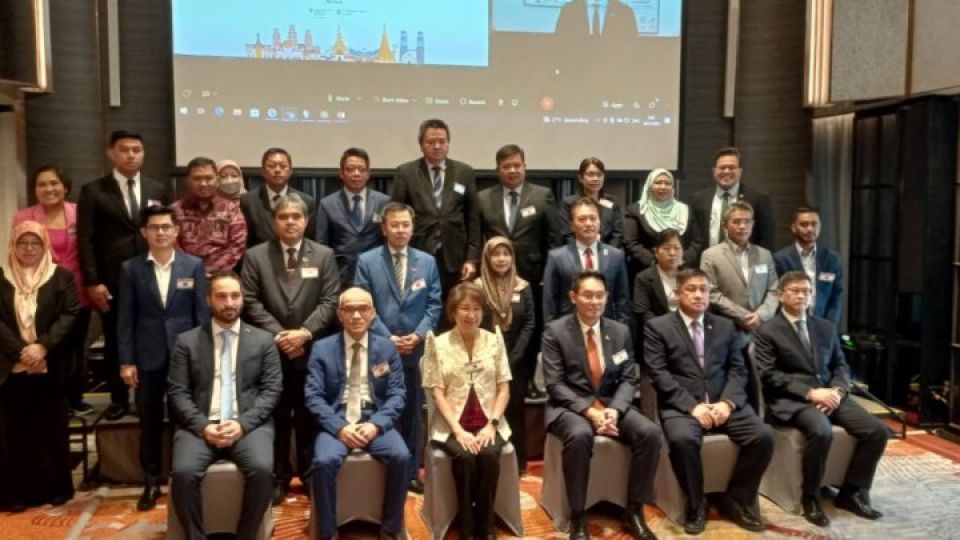March 31, 2023
JAKARTA – The Indonesian government continues to strive toward a more sustainable future by carrying out their initiatives that align with Sustainable Development Goals (SDGs) outlined by the United Nations. A collection of seventeen interlinked objectives, some are evidently needed to secure a better future for the country; including the elimination of poverty, improvement of people’s health and climate action.
Expert coordinator at the National Secretariat of SDGs Implementation, Yanuar Nugroho, confirmed that Indonesia continued its efforts to accelerate the achievement of SDGs. The statement was conveyed at the 3rd ASEAN Forum on SDGs with National Development Planning Agencies in Bangkok on Thursday (30/3/2023).
Along with Yanuar, the forum was also attended by a team of the Senior Officials Meeting on Rural Development and Poverty Eradication (SOMRDPE) from the Villages, Disadvantaged Regions and Transmigration Ministry: Ivanovich Agusta, Fince Decima Hasibuan, Theresia Junidar, Sudarti and Yoga Sidharta.

. (./.)
“During the seven years of implementing the SDGs, Indonesia has developed several policies to accelerate their achievement. Entering 2023, the government is updating regulations to accelerate the achievement of SDGs which strengthens the role of provincial governments. Inclusive partnerships between state and non-state factors are also enhanced through the development of SDGs Action Plans and National and sub-national Coordination Teams. An innovative financing center is also created,” Yanuar explained.
Giving an update on the project, he said Indonesia has prioritized 124 of the 169 SDGs targets into the 2020-2024 National Medium Term Development Plan. The plan includes the eradication of poverty by 2024 through the provision of conditional cash assistance, among other things. The initiative is aimed to add to efforts to tackle stunting through the National Strategy to Accelerate the Reduction of Stunting.
“Indonesia is also trying to accelerate the national digital transformation in the health and education sectors, by integrating medical record data and health services and overcoming inequality in access to education through improving infrastructure, technology and policy reforms,” he added.
He noted that Indonesia grew by 5.31 percent in 2022, which exceeded the government’s target of 5.2 percent. Yanuar attributed the result to coordinated and synergized efforts with all stakeholders. This included maintaining people’s purchasing power, strengthening the domestic market by maximizing the use of domestic products, encouraging the growth of micro, small and medium enterprises (MSMEs), increasing investment through economic transformation policies, increasing productivity, human resources and job creation.
Furthermore, the government is also reforming the financial sector through regulatory frameworks, building downstream industries, empowering human resources and encouraging the tourism sector as the main economic driver through the establishment of special economic zones for tourism.
To reiterate the country’s commitment to achieving SDGs, the government integrates low-carbon and climate-resilient development policies into national development planning and implementation, which play an integral role in the environmental dimension. To track the success the government has a concise national agenda that has clear targets, sectors and locations in the national development agenda in its policy.
Moreover, a National Corruption Prevention Strategy has been developed as a policy direction that focuses on coordinating actions to prevent corruption in the country. This particular problem has become a main focus installing the country’s growth. While Indonesia’s Corruption Perceptions Index (CPI) has shown steady progress from 2018 to 2021, the score dropped by four points in 2022, putting the country’s current score at 34/100 and is ranked 110 out of 180 countries surveyed.
Lastly, data shows that there has been an increase in the percentage of holders of birth certificates for those aged 0-17 among the low-income 40 percent of the population, reflecting improvements in civil registration and management of population data. The government had developed guidelines for both the national and regional levels for the acceleration of civil registration services and vital statistics.
The Villages, Disadvantaged Regions and Transmigration Minister Abdul Halim Iskandar has also accelerated the achievement of SDGs through the direction of the ministry’s SDGs policy. Development is carried out at the village level for everyone’s benefit. The minister highlighted that the inclusive approach through participation from all levels was what led to the national level, and will eventually start the global impact that was aimed for.
This article was published in collaboration with Ministry of Village, Development of Disadvantaged Regions and Transmigration


